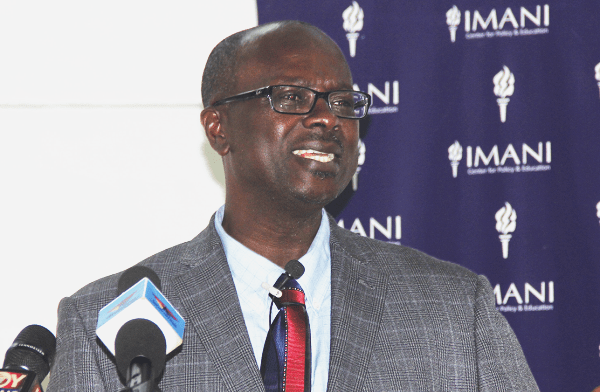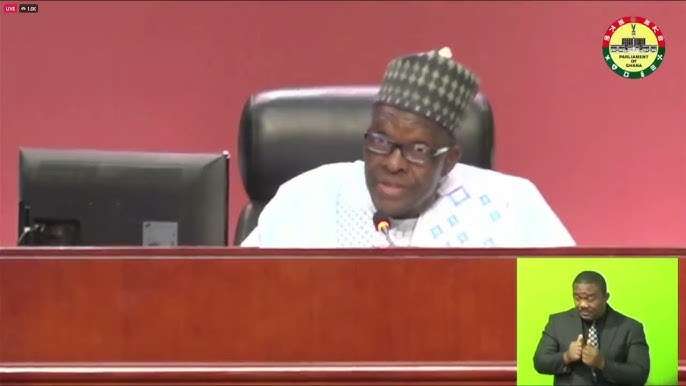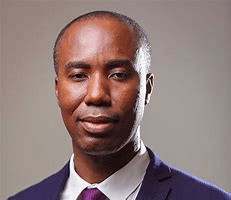The Speaker of Parliament, Rt. Hon. Alban Kingsford Sumana Bagbin’s ruling declaring the seats of four Members of Parliament (MPs) vacant has ignited widespread public debate, with reactions varying across political and legal circles.
The MPs in question—Cynthia Morrison (Agona West), Kojo Asante (Suhum), Andrew Asiamah (Independent, Fomena), and Peter Kwakye Ackah (Amenfi Central)—have drawn public attention due to the Speaker’s decision, which stems from their nomination filings to contest the upcoming 2024 elections on different political platforms.
The ruling, though not the first of its kind in Ghana’s parliamentary history, has raised critical questions about the constitutionality of the Speaker’s actions and the legal interpretation of the MPs’ actions.
On one hand, legal scholars argue that the MPs violated their party’s constitution and the national Constitution by filing nominations for different political vehicles.
On the other hand, some see the ruling as a misapplication of constitutional provisions that restrict an MP’s affiliation during their current parliamentary term.
The debate has evolved into a larger discourse on constitutional interpretation, parliamentary allegiance, and political party autonomy.
Legal Opinions on the Constitutional Basis of the Speaker’s Ruling
Renowned legal practitioner and law lecturer at the University of Ghana, Dr Justice Srem Sai, in a very compelling argument, presented a firm constitutional interpretation that supports the Speaker’s decision.
According to Dr. Sai, the Constitution must be read holistically, with its provisions examined in concert rather than in isolation.
He emphasized Article 97(1)(g) and (h), which prohibit cross-carpeting by MPs, and noted that Article 55(2) gives every Ghanaian citizen of voting age the right to join only one political party at a time.
“This means that a person may join only one political party at a time; and that no one has the right to join two or more political parties at the same time.
“Let’s call this the ‘one-person-one-party’ rule. It is for this ‘one-person-one-party’ rule that every political party retains the power to treat as automatic forfeiture of membership any person who, while holding its membership, joins another political party or vehicle”.
Dr Justice Srem Sai, renowned legal practitioner and law lecturer at the University of Ghana School of Law
This, he argued, aligns with the Constitution’s Article 55(5), which insists that political parties’ internal rules and actions must not contravene the Constitution.
Therefore, Dr Srem Sai pointed out that the MPs’ filing of nominations with different political vehicles effectively represents an intolerable breach of both their party constitutions and the national Constitution.

In Dr. Sai’s view, any political party that fails to expel such MPs effectively contravenes the “one-person-one-party rule.”
He asserted that allowing these MPs to continue riding two political vehicles would undermine the rule of law and set a dangerous precedent for party discipline.
Hence, he supported the Speaker’s move to declare their seats vacant, as it prevents an unconstitutional and disruptive shift in parliamentary alignment.
“Indeed, to argue that the 4 MPs could keep their seats while, at the same time, contesting with different political vehicles (from the ones they rode into Parliament) is to argue that they have the right to join two political parties or vehicles at the same time”.
Dr Justice Srem Sai, renowned legal practitioner and law lecturer at the University of Ghana School of Law
Counterarguments: Future Political Ambitions vs. Present Allegiance
In contrast to Dr. Sai’s interpretation, Professor Stephen Kweku Asare, a legal scholar and Democracy and Development Fellow at CDD-Ghana, offered a different perspective.
Prof. Asare contended that the Speaker’s decision represents a misapplication of constitutional provisions, specifically Article 97(1)(g) and (h), which address situations where an MP crosses the floor or officially changes political allegiance.
He stressed that filing a nomination for a future election does not equate to severing current ties within Parliament.
“To my knowledge, none of the four MPs participated in the debate, and it remains unclear from the Speaker’s ruling whether he sought their views on the motion. Filing a nomination to run as an independent or on another party’s ticket in a future election does not amount to severing an alliance with the current party in Parliament.
Prior to their nomination filings, the House was balanced at 137-137-1, and it remained unchanged after the filings. This demonstrates that filing a nomination is merely an expression of intent for a future political course and does not alter the MP’s present affiliation, obligations, or duties. The MPs remain bound by the social contract formed when they were elected and continue to serve their current term under that mandate”.
Professor Stephen Kweku Asare, renowned Legal scholar and D&D Fellow in Public Law and Justice at CDD-Ghana
According to Prof. Asare, parliamentary allegiance is determined by an MP’s actions during their current term, not by their future political plans.
Thus, the Constitution is primarily concerned with actions that directly impact the numerical composition of the House, not with expressions of intent for future electoral cycles.
He warned that interpreting future political nominations as grounds for vacating a seat could lead to a misapplication of the law and create a chilling effect, discouraging MPs from planning their political futures without fear of reprisal.
Historical Context and Implications for Democracy
The core of the legal dispute revolves around the interpretation of Article 97(1)(g) and (h) and their role in safeguarding parliamentary representation.
According to Prof. Asare, these articles were originally designed to prevent MPs from mid-term political shifts that could disrupt the balance of power in Parliament.
He noted that this measure emerged as a response to post-independence political realignments, which saw several opposition MPs defect to the then-ruling Convention People’s Party (CPP), a move that contributed to the establishment of a one-party state.
“Article 97(1)(g)& (h) of the Constitution are concerned with actions that affect the numerical composition of the House, aiming to avoid situations that disrupt the voter’s verdict.
“If the electorate has voted for a balance of 137-137-1, MPs should not unilaterally disturb this balance, and those who attempt to change it during their term must vacate their seats”.
Professor Stephen Kweku Asare, renowned Legal scholar and D&D Fellow in Public Law and Justice at CDD-Ghana
Prof. Asare argued that by vacating the seats of the four MPs so close to a general election, the Speaker risks undermining this mandate and violating the fundamental principle of democratic representation.
He pointed out that Article 112(6) of the Constitution prohibits the holding of by-elections within three months of a general election, yet the Speaker’s decision could leave entire constituencies unrepresented during this critical period.

A Precedent with Far-reaching Consequences
The ruling sets a precedent that could have far-reaching implications for Ghana’s parliamentary democracy.
Dr Sai’s argument highlighted the importance of constitutional fidelity and party discipline, while Prof. Asare emphasised the need to protect MPs’ freedom to plan their political futures.
Beyond the immediate political fallout, the ruling raises deeper concerns about the relationship between political parties and their MPs, the limits of parliamentary allegiance, and the potential erosion of democratic principles such as freedom of association.
In a democracy that prides itself on pluralism, the debate over the MPs’ seats underscores the delicate balance between party loyalty and individual political aspirations.
While the Constitution serves as the guiding framework for resolving such disputes, its interpretation remains subject to ongoing debate, as both Dr. Sai and Prof. Asare’s perspectives reveal.
The outcome of this legal and political battle will shape the future of parliamentary representation and party discipline in Ghana for years to come.
READ ALSO: Chief Moomen Reveals Ghana’s State System Is Ineffective in Tackling Galamsey





















